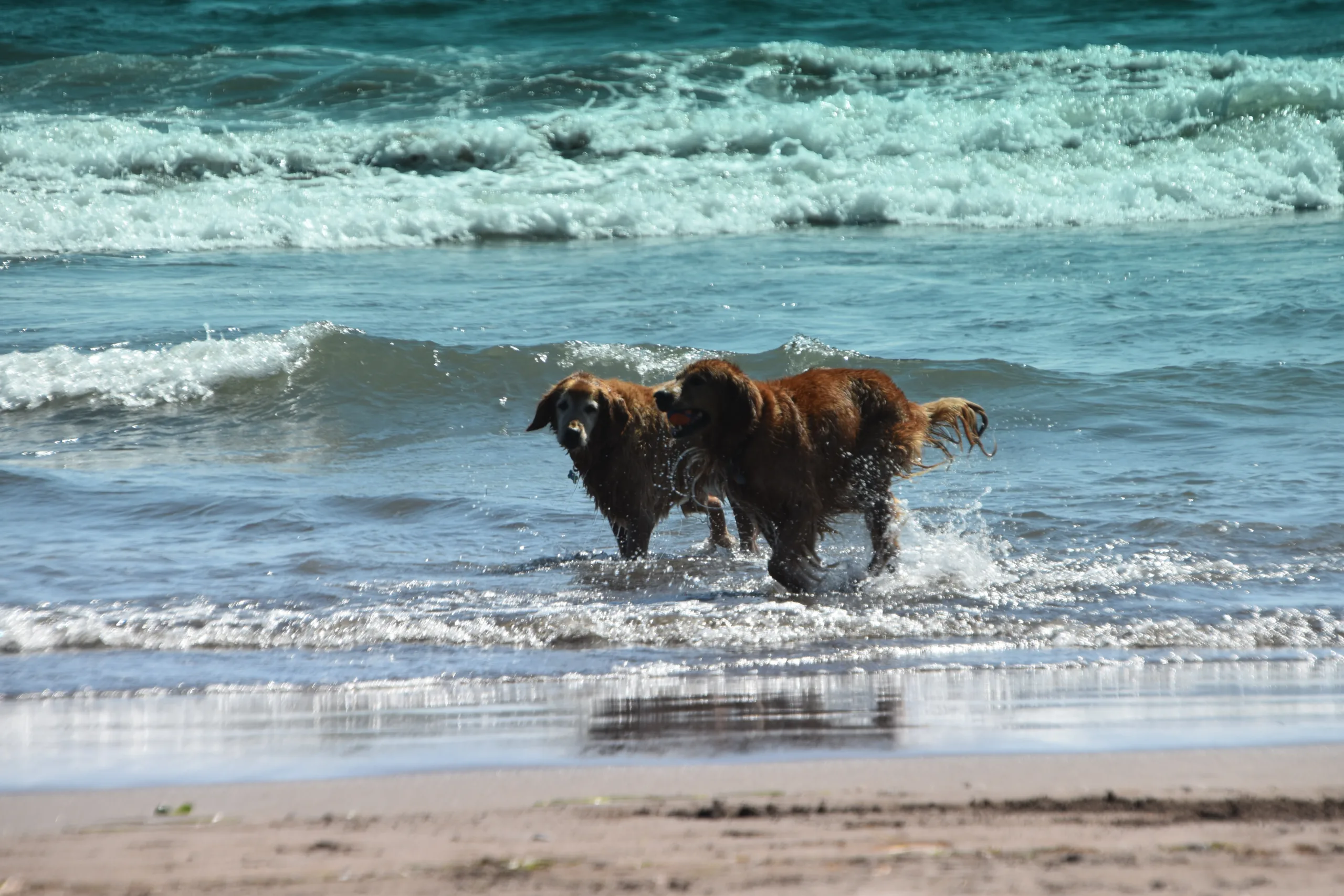Few things are as heartwarming as watching a playful dog enjoy a romp in the water, whether it’s a swim in a lake, a splash in a puddle, or a refreshing bath. However, as any dog owner can attest, wet dogs often come with an unmistakable and somewhat pungent odor. The phenomenon known as “wet dog smell” has intrigued and puzzled pet owners for years. In this article, we will dive into the science behind wet dog smell, explore the reasons for its occurrence, and provide tips for managing and preventing this olfactory phenomenon.
For more about dogs click here
Why Do Dogs Smell Bad When Wet?
The distinct odor that emanates from wet dogs is primarily due to a combination of factors:
- Microbial Activity: The dampness of a dog’s fur creates a favorable environment for the growth of bacteria and yeast on the skin. The breakdown of oils and compounds by these microorganisms produces odorous byproducts.
- Natural Oils: Dogs secrete natural oils that coat their skin and fur, helping to keep their coat healthy. When these oils mix with water, they can release an odor that is intensified when the dog dries.
- Scent Glands: Dogs have scent glands located in various parts of their bodies, including their skin and paws. When wet, these glands can release a stronger scent.
How Do I Stop My Wet Dog From Smelling?
Managing wet dog smell involves a combination of prevention and proper care:
- Regular Grooming: Regular grooming, including brushing and bathing, helps remove dirt, debris, and excess oils from your dog’s coat. This can prevent the buildup of odor-causing substances.
- Thorough Drying: After your dog gets wet, ensure they are thoroughly dried with a clean towel or a blow dryer on a low setting. Pay attention to areas that tend to retain moisture, such as under the ears and between skin folds.
- Use Pet-Friendly Shampoos: When bathing your dog, opt for shampoos specifically formulated for dogs. Harsh human shampoos can strip their skin of natural oils, leading to an imbalance that contributes to odor.
Is Wet Dog Smell Normal?
Yes, wet dog smell is a common occurrence among dogs:
- Biological Factors: The combination of microbial activity, natural oils, and scent gland secretions is a natural and normal process for dogs.
- Variation: Some dogs might have a stronger wet dog smell than others due to variations in their skin and coat.
Do All Dogs Get Wet Dog Smell?
While wet dog smell is a common phenomenon, not all dogs have the same level of odor:
- Coat Type: Dogs with denser coats might be more prone to retaining moisture and developing a stronger odor.
- Skin Health: Dogs with skin issues, such as allergies, might be more susceptible to developing an intensified wet dog smell.
Why Does My Dog Smell Like Skunk When Wet?
The resemblance between wet dog smell and the smell of skunk is due to certain sulfur compounds:
- Skunk Spray: Skunk spray contains sulfur compounds that can create a similar odor when mixed with water on a dog’s coat.
- Different Origins: While wet dog smell is a result of microbial activity and oil breakdown, skunk odor is a result of the specific compounds in skunk spray.
How Often Should I Wash My Dog?
The frequency of bathing your dog depends on several factors:
- Coat Type: Dogs with oily or dense coats might need more frequent baths to manage odor and hygiene.
- Lifestyle: Dogs that frequently engage in outdoor activities or swimming might need more frequent baths.
- Health Conditions: Dogs with skin conditions might require special bathing schedules recommended by a veterinarian.
External Resources for Dog Grooming and Odor Management
For further insights into dog grooming and odor management, consider exploring these resources:
Frequently Asked Questions About Wet Dog Smell
Q1: Why do dogs smell bad when wet? Wet dog smell is caused by microbial activity, the mixing of natural oils with water, and the release of scent gland secretions.
Q2: How do I stop my wet dog from smelling? Regular grooming, thorough drying, and using pet-friendly shampoos can help manage wet dog smell.
Q3: Is wet dog smell normal? Yes, wet dog smell is a normal occurrence due to biological processes.
Q4: Do all dogs get wet dog smell? While common, the intensity of wet dog smell can vary among individual dogs.
Q5: Why does my dog smell like skunk when wet? The similarity in odor is due to certain sulfur compounds, although wet dog smell and skunk odor have different origins.
Q6: How often should I wash my dog? The frequency of bathing depends on coat type, lifestyle, and any underlying health conditions.
In Conclusion
Understanding the factors behind wet dog smell empowers pet owners to take proactive steps in managing and preventing this natural occurrence. Regular grooming, thorough drying, and selecting appropriate grooming products can contribute to a fresher-smelling and healthier dog. While wet dog smell is a normal part of canine life, it’s essential to strike a balance between hygiene and the preservation of their natural oils and scent.
